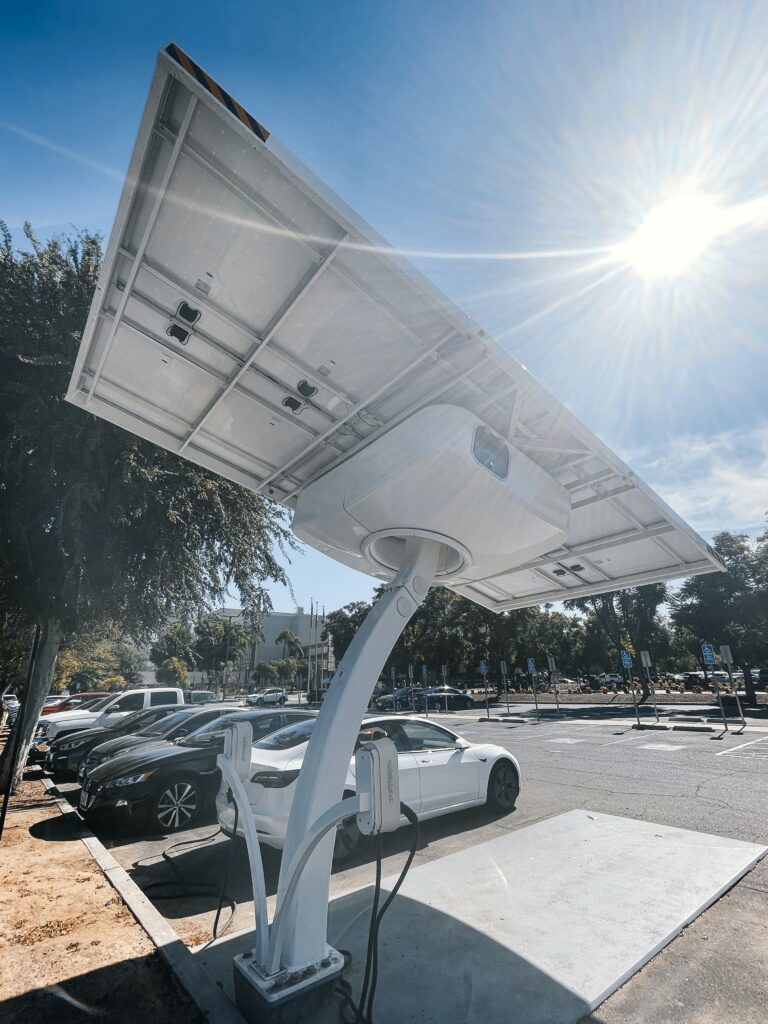Sustainable Transportation: Paving the Way to a Greener Future

Discover the benefits and potential of sustainable transportation like electric cars, e-bikes, and public transit solutions in creating a greener future.
The need for sustainable transportation has become increasingly crucial as the world grapples with the challenges of climate change and air pollution. Electric cars, bikes, and public transit systems have emerged as viable solutions to reduce carbon emissions and foster sustainable mobility.
Electric Cars for Sustainable Transportation

Electric vehicles (EVs) have gained significant traction as a sustainable alternative to traditional gasoline-powered cars. By replacing internal combustion engines with electric motors, EVs reduce air pollution and improve air quality in urban areas. Additionally, they contribute to lowering greenhouse gas emissions, particularly when charged using renewable energy sources such as solar or wind power.
The growing popularity of EVs is largely attributed to advancements in battery technology, which have significantly improved driving range and charging infrastructure. With increased accessibility and affordability, more consumers are embracing electric cars as a practical and eco-friendly mode of transportation. However, the Indian government has taken significant steps to accelerate the adoption of EVs.
Electric Bikes for Sustainable Transportation

Electric bikes, or e-bikes, present a sustainable and efficient alternative to traditional bicycles. It combines pedal power with electric assistance, allowing riders to cover greater distances with ease. They have gained widespread popularity due to their ability to reduce commuting time and effort while being environmentally friendly.
They contribute to sustainable transportation by reducing the reliance on fossil fuels and decreasing traffic congestion. Electric bikes offer an accessible and affordable option for short to medium-distance commutes, reducing the need for short car trips and mitigating congestion in urban areas.
Public Transit in Sustainable Transportation

Public transit systems play a vital role in sustainable transportation, serving as the backbone of well-designed and environmentally conscious cities. Efficient and accessible public transportation reduces the number of individual vehicles on the road, curbing traffic congestion and lowering carbon emissions.
Investments in public transit infrastructure, including buses, trams, light rail, and subways, are crucial for sustainable urban development. These systems offer a more space-efficient means of transportation, accommodating a larger number of passengers compared to private vehicles.
Integrated Solutions for Sustainable Mobility
Achieving a truly sustainable transportation system requires integrating electric cars, bikes, and public transit into a cohesive network. By combining these modes of transportation, cities can optimize efficiency, convenience, and environmental impact.
Smart transportation planning involves designing multi-modal networks that facilitate seamless interconnections between electric cars, bikes, and public transit. This integration can be achieved through the development of charging infrastructure for electric vehicles, including dedicated parking spaces with charging stations and secure storage facilities for e-bikes at transit hubs.
Infrastructure Development for Sustainable Transportation
It should focus on expanding the charging infrastructure for electric cars, ensuring that there are sufficient charging stations in urban areas, highways, and residential complexes. Fast-charging stations can significantly reduce charging times and increase the convenience of electric vehicle ownership. Furthermore, governments should consider offering incentives to businesses and homeowners to install charging infrastructure in parking lots and residential buildings.
For electric bikes, creating a supportive infrastructure involves establishing dedicated bike lanes and secure bike parking facilities. Bike-sharing programs can also be implemented to provide easy access to e-bikes for short-distance commutes and promote their usage in conjunction with public transit. According to the Global Infrastructure Outlook, approximately $2 trillion in transport infrastructure investments will be required each year globally until 2040.
Investment in research and development
Investing in research and development is crucial for improving the performance, efficiency, and affordability of electric vehicles and bikes. Continued advancements in battery technology will lead to longer driving ranges, shorter charging times, and reduced costs. Similarly, hydrogen can also be used in the heavy mobility sectors which are difficult to electrify. Governments and private companies should allocate resources to support research initiatives and incentivize technological advancements in the field of sustainable transportation.
Public awareness campaigns about Sustainable Transportation
These are essential for promoting sustainable transportation options and encouraging behavior change. Providing information about government incentives, cost savings, and the positive impact on air quality can motivate individuals to choose sustainable transportation alternatives. Collaboration with community organizations, schools, and workplaces can further enhance the reach and effectiveness of these awareness campaigns.
The Bottom Line
The integration of sustainable transport into various Sustainable Development Goals (SDGs) and targets is a key focus of the 2030 Agenda for Sustainable Development. Additionally, the significance of transport in addressing climate change is acknowledged under the United Nations Framework Convention on Climate Change (UNFCCC). The transport sector is expected to play a crucial role in realizing the goals of the Paris Agreement. Sustainable transportation solutions, ultimately lead to healthier, cleaner, and more livable cities for generations to come.
India’s sustainability landscape is being transformed by The Disposal Company, which is offering a pioneering platform that empowers brands to go plastic-neutral and carbon-neutral. Learn more here.




